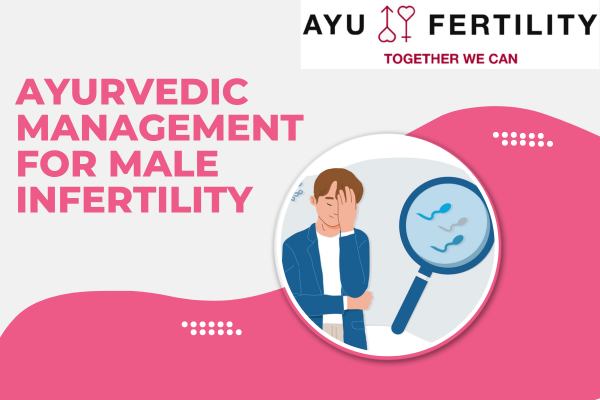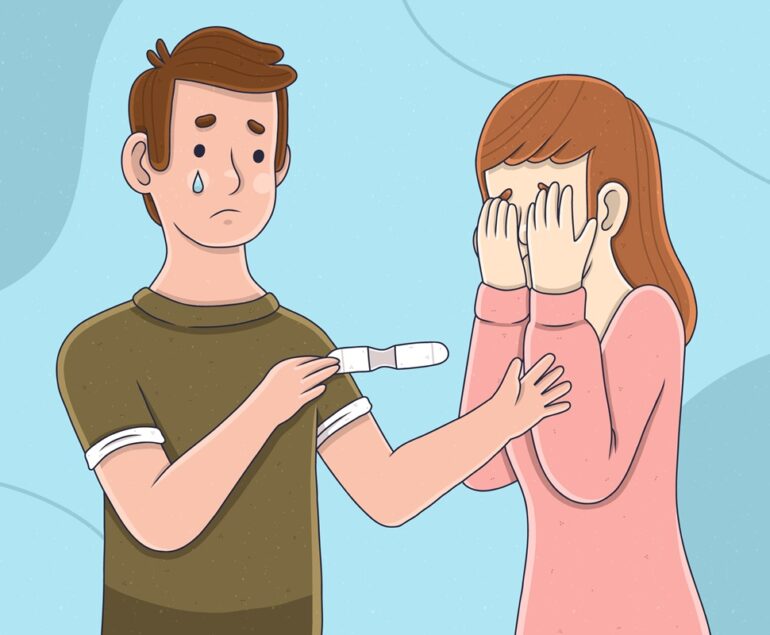Male infertility is a problem that affects many couples around the world. According to Ayurveda, male infertility is usually caused by an imbalance in the body’s doshas. The Ayurvedic approach to treating male infertility involves balancing the doshas by introducing lifestyle changes, an appropriate diet, herbal remedies, and therapies.
Male infertility can be caused by various factors, including low sperm count, poor sperm motility, abnormal sperm morphology, hormonal imbalances, and lifestyle choices. Ayurveda views infertility as an imbalance of the body’s doshas (vata, pitta, and kapha) and aims to restore harmony to enhance reproductive health.
Ayurveda recognises the importance of a healthy lifestyle in promoting reproductive health. Dietary recommendations, exercise routines, and sleep patterns are addressed to support optimal fertility. These lifestyle modifications, combined with Ayurvedic herbal remedies, create a conducive environment for healthy sperm production and overall reproductive well-being.
Ayurvedic management for male infertility not only focuses on addressing immediate concerns but also aims to provide long-term benefits. By addressing the root causes of infertility, Ayurveda promotes sustainable improvements in reproductive health, increasing the chances of conception and supporting overall reproductive wellness.
Ayurvedic Management for Male Infertility
Ayurvedic management for male infertility offers several benefits for individuals seeking to improve their reproductive health. Ayurvedic management for male infertility involves a holistic approach that aims to address the underlying imbalances and root causes contributing to infertility. Here are some key components of Ayurvedic management for male infertility:
Diet and Lifestyle
When it comes to the Ayurvedic management of male infertility, diet and lifestyle play a significant role. Men experiencing infertility are advised to eat a healthy, balanced diet that includes whole foods, vegetables, nuts, and seeds. They should avoid processed and junk foods, refined sugars, and trans fats. Also, men are encouraged to incorporate regular physical activity like yoga, walking, and other moderate exercises into their lifestyle.
Ayurvedic management for male infertility relies on natural remedies and lifestyle modifications. Herbal formulations made from plants, minerals, and other natural ingredients are used to address specific issues. These remedies are generally safe, with minimal side effects, when used under the guidance of an Ayurvedic Doctor for Male Infertility and a qualified Ayurvedic practitioner.
Ayurveda takes a holistic approach to health, considering the mind, body, and spirit as interconnected entities. It focuses on identifying and addressing the root causes of infertility rather than simply treating the symptoms. This approach ensures comprehensive care that promotes overall well-being.
According to a famous sexologist in Delhi, Ayurveda emphasises the importance of a healthy diet and lifestyle in promoting fertility. Including nutrient-rich foods like almonds, walnuts, dates, and ghee can enhance sperm quality and quantity. Avoiding excessive caffeine, alcohol, smoking, and processed foods is crucial. Regular exercise, adequate sleep, and stress management techniques such as yoga and pranayama can also contribute to overall reproductive well-being.
Herbs and Supplements
Ayurvedic herbs and supplements can be incredibly helpful in promoting male fertility. Herbs like ashwagandha, Shatavari, and Gokshura are known for their potential to improve male fertility. These herbs restore the body’s natural balance and provide essential nutrients required for healthy sperm production. These herbs are typically used in the form of capsules, powders, or decoctions under the guidance of an Ayurvedic practitioner.
Ayurveda believes that imbalances in the doshas can affect reproductive health. By balancing the doshas, specifically vata, pitta, and kapha, Ayurvedic treatments aim to restore harmony to the body. This approach helps regulate hormonal imbalances, enhance sperm production, improve sperm quality, and boost overall reproductive health.
Panchakarma
Panchakarma is an ancient Ayurvedic technique that includes a set of five natural therapies that cleanse the body of toxins and promote rejuvenation. In men experiencing infertility, panchakarma therapy enhances overall reproductive health by improving the quality of the sperm. Some of the techniques that are applied in Panchakarma include massage, steam therapy, and enemas.
Ayurveda recognises that each person is unique, and their health concerns should be addressed accordingly. Ayurvedic practitioners assess an individual’s constitution (Prakriti) and identify any imbalances before designing a personalised treatment plan. This individualised approach ensures that the treatment is tailored to the specific needs of the person, maximising its effectiveness.
Panchakarma is highly effective in eliminating accumulated toxins (ama) from the body. It targets the deep tissues and channels of the body to remove toxins that can hinder proper functioning and contribute to various health issues. By detoxifying the body, Panchakarma helps restore balance and promotes optimal health.
Yoga and Meditation
Regular practice of yoga and meditation can profoundly impact male fertility. Certain yoga poses like the Cobra pose (Bhujangasana), the Seated Forward Bend (Paschimottanasana), and the Shoulderstand (Sarvangasana) promote the healthy functioning of the reproductive organs. Also, meditation can reduce stress and anxiety, which are known to be contributing factors to infertility.
Stress has a significant impact on fertility. Ayurveda emphasises stress reduction through various techniques such as meditation, yoga, and pranayama (breathing exercises). By managing stress levels, Ayurvedic practices help regulate hormonal imbalances and improve sperm quality and motility.
Conclusion
Ayurvedic management for male infertility is all about promoting balance and overall wellness. This approach offers natural remedies and therapeutic techniques that can significantly impact a man’s reproductive health. If you plan to try this approach, it is best to consult an experienced Ayurvedic practitioner to develop a personalised plan that meets your specific needs.
When it comes to seeking Ayurvedic management for infertility in Delhi, Dr. Prashant Jain stands out as a trusted and highly experienced practitioner. With a deep understanding of Ayurveda and its application in addressing male infertility, Dr. Jain is the best Ayurvedic Infertility Doctor in Delhi and has helped numerous couples achieve their dream of parenthood through personalised treatment plans and compassionate care. You can also get an Ayurvedic Doctor Online Consultation through our website.
It is important to note that Ayurvedic management for male infertility should be pursued under the guidance of a qualified Ayurvedic practitioner who can provide personalised care and monitor progress throughout the treatment process. It’s important to note that Ayurvedic management for male infertility should be tailored to individual needs and carried out under the guidance of a qualified Ayurvedic practitioner who can assess the specific imbalances and create a personalised treatment plan.




